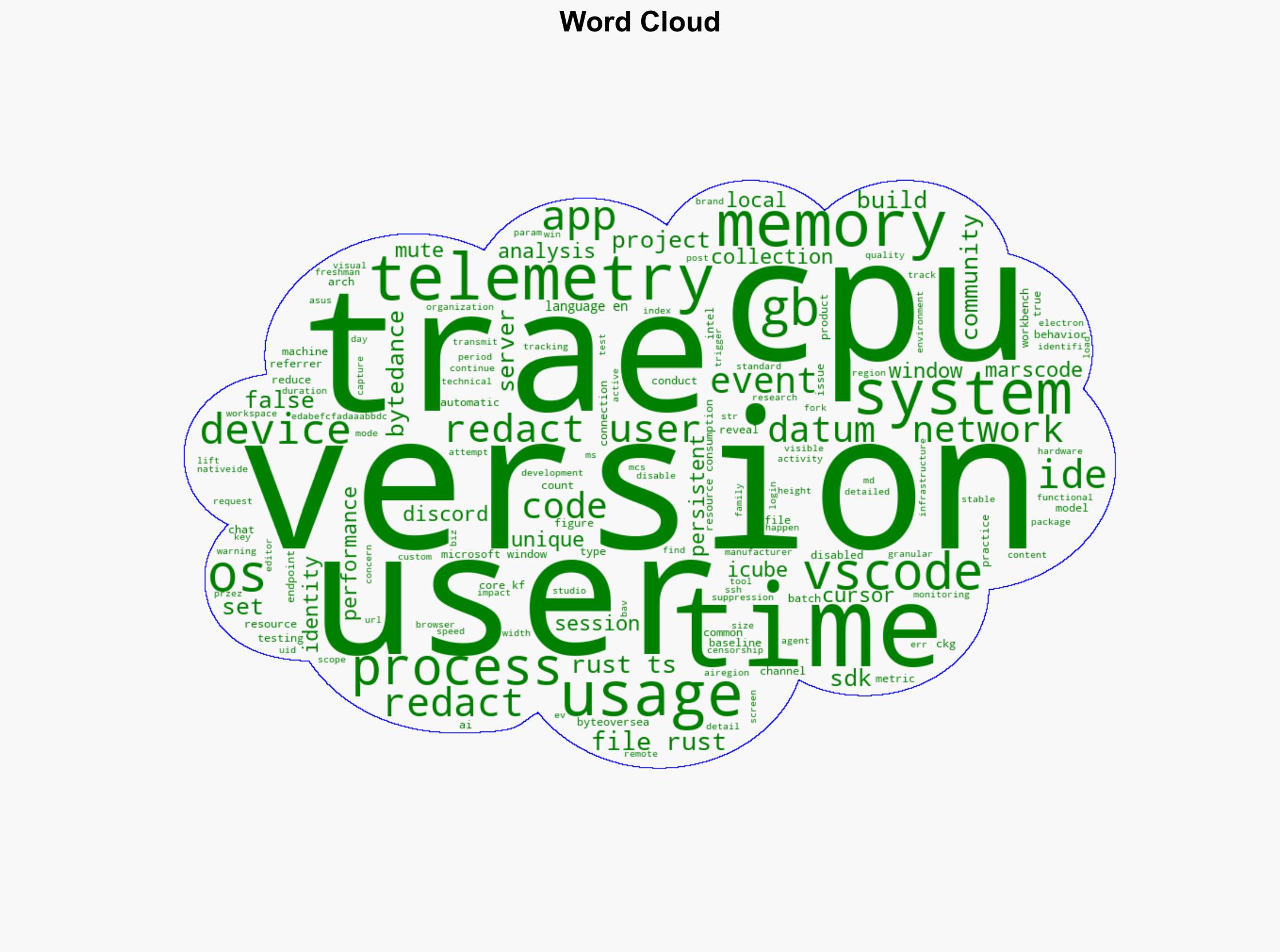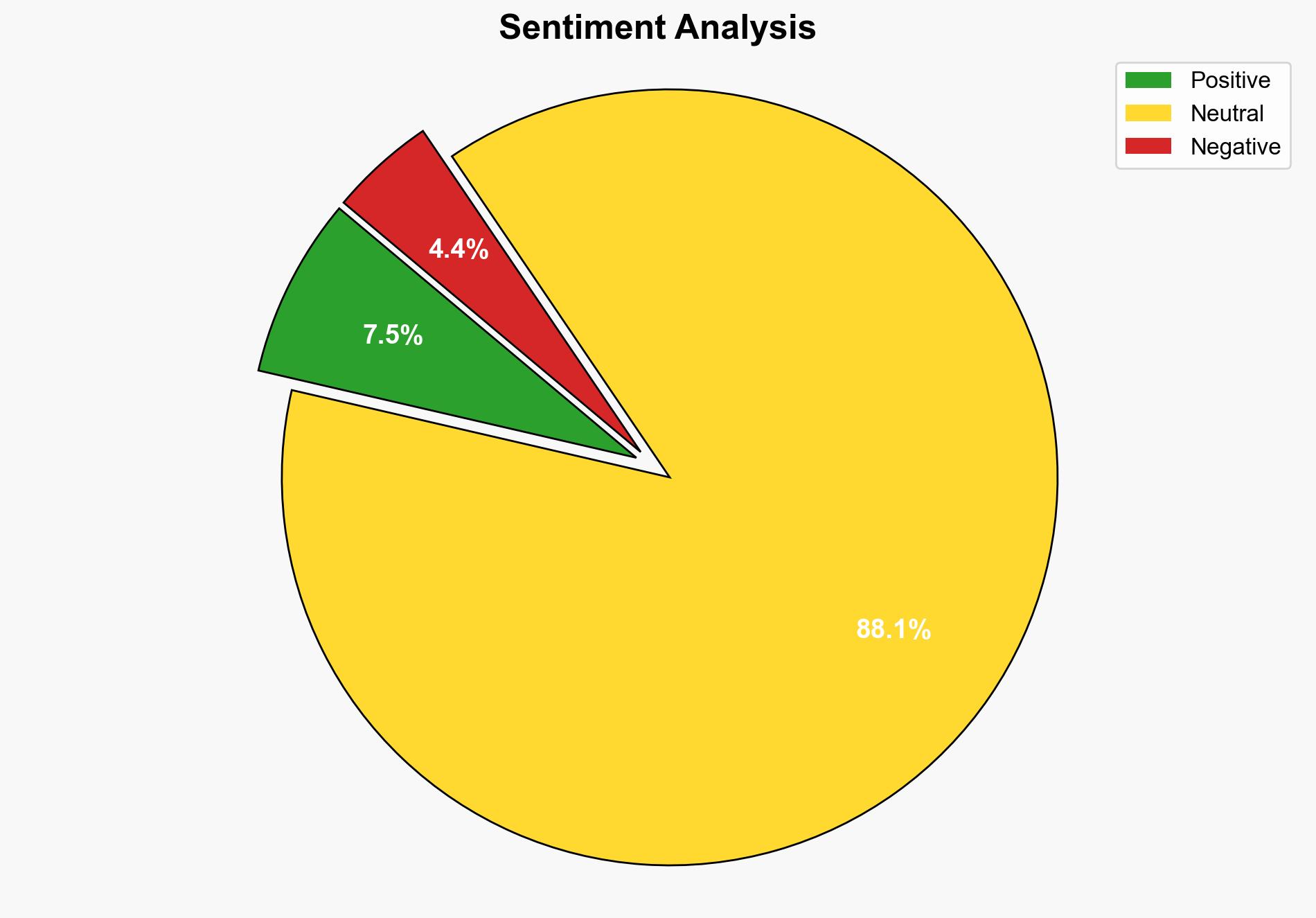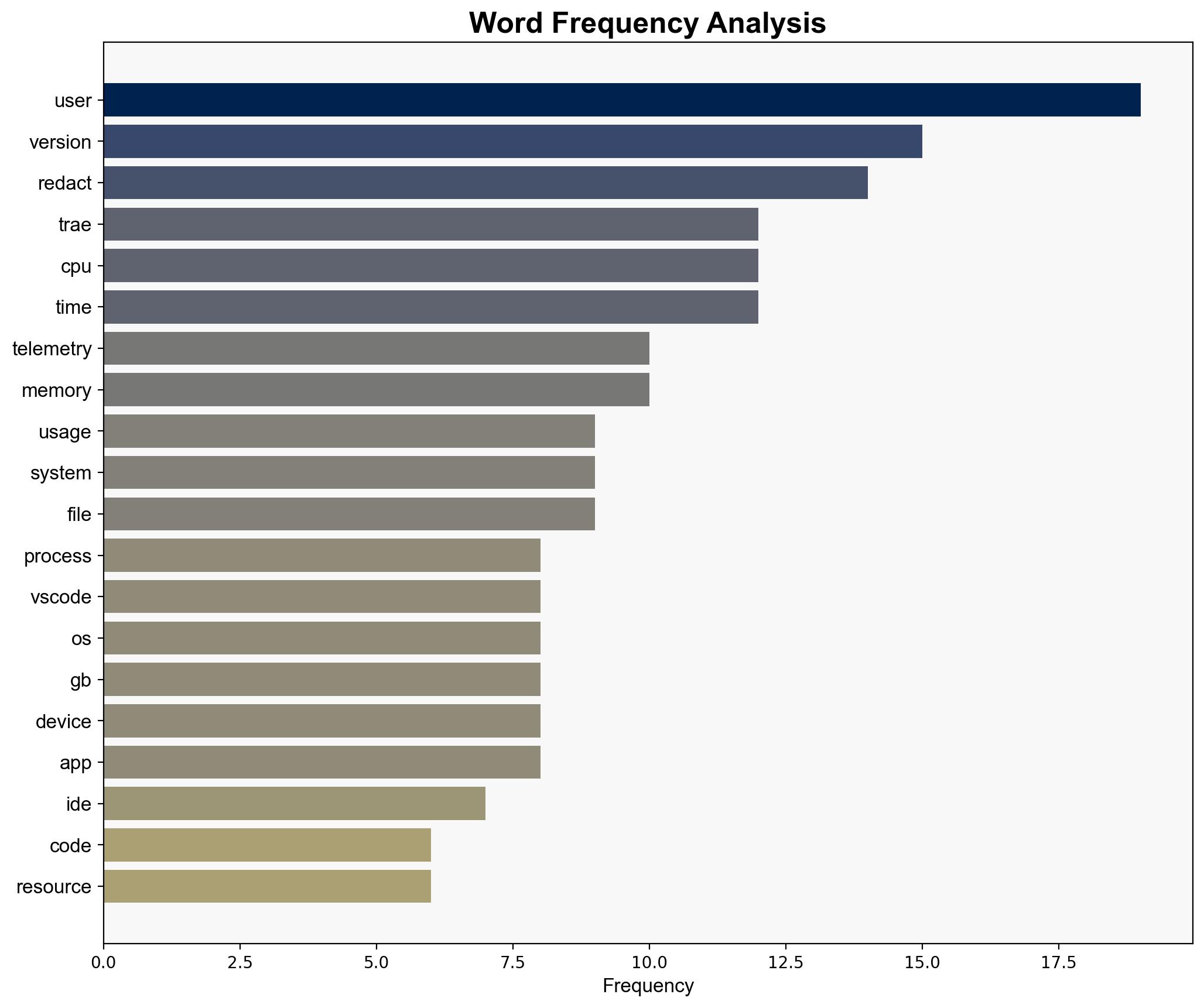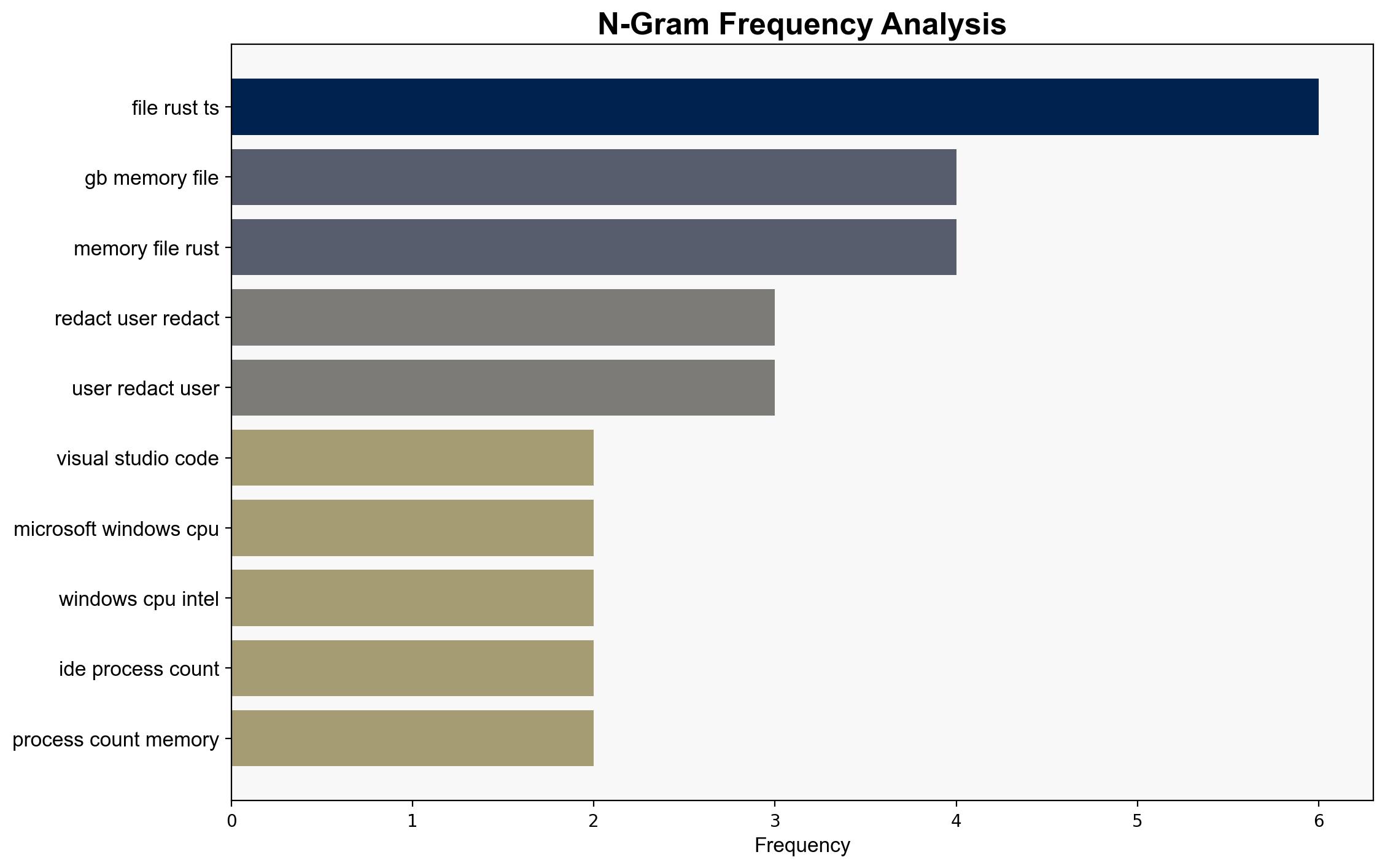Disabling telemetry in ByteDance’s VSCode fork increases data sent to its server – Github.com
Published on: 2025-07-27
Intelligence Report: Disabling telemetry in ByteDance’s VSCode fork increases data sent to its server – Github.com
1. BLUF (Bottom Line Up Front)
The analysis suggests that disabling telemetry in ByteDance’s VSCode fork may paradoxically increase data transmission to ByteDance servers. The most supported hypothesis is that this behavior is either a deliberate design choice or a significant oversight. Confidence in this assessment is moderate due to limited transparency and potential biases in data interpretation. Recommended action includes a thorough technical audit and engagement with ByteDance for clarification.
2. Competing Hypotheses
1. **Hypothesis 1**: Disabling telemetry in ByteDance’s VSCode fork is a deliberate design to increase data collection, possibly for enhanced analytics or other undisclosed purposes.
2. **Hypothesis 2**: The increased data transmission is an unintended consequence of a software bug or misconfiguration that inadvertently increases network activity when telemetry is disabled.
Using the Analysis of Competing Hypotheses (ACH) 2.0, Hypothesis 1 is better supported. Evidence of persistent outbound connections and increased data requests when telemetry is disabled aligns more closely with deliberate design, though the possibility of a software bug cannot be entirely dismissed.
3. Key Assumptions and Red Flags
– **Assumptions**: It is assumed that the observed network behavior is consistent across different environments and not an anomaly specific to the test setup.
– **Red Flags**: Lack of transparency from ByteDance regarding telemetry practices and potential obfuscation of data transmission methods.
– **Blind Spots**: Limited access to ByteDance’s internal documentation and lack of third-party verification of findings.
4. Implications and Strategic Risks
– **Cybersecurity Risks**: Increased data transmission could expose sensitive user data, leading to privacy violations and potential exploitation.
– **Geopolitical Risks**: Given ByteDance’s Chinese origin, there may be concerns about data sovereignty and compliance with international data protection regulations.
– **Economic Risks**: Potential loss of trust in ByteDance’s products could impact market share and lead to regulatory scrutiny.
5. Recommendations and Outlook
- Conduct an independent technical audit of ByteDance’s VSCode fork to verify findings and assess potential risks.
- Engage with ByteDance to clarify telemetry practices and request transparency in data handling.
- Scenario Projections:
- Best Case: ByteDance addresses the issue, clarifies data practices, and enhances user trust.
- Worst Case: Continued data transmission leads to regulatory action and loss of user base.
- Most Likely: ByteDance makes incremental changes to address concerns while maintaining core data practices.
6. Key Individuals and Entities
– ByteDance (entity)
– VSCode (entity)
7. Thematic Tags
national security threats, cybersecurity, data privacy, software integrity





